Discover the Women of the Hall
These are the Inductees of the National Women’s Hall of Fame. Select any of the women to discover their stories and learn how they have influenced other women and this country.
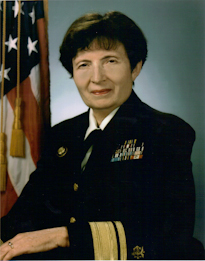
Faye Glenn Abdellah
First nurse to hold the rank of Rear Admiral and the title of Deputy Surgeon General for the United States. She developed the first tested coronary care unit. A national pioneer in nursing research, she has authored or co-authored more than 150 publications and helped change the focus of nursing from disease-centered to patient-centered.
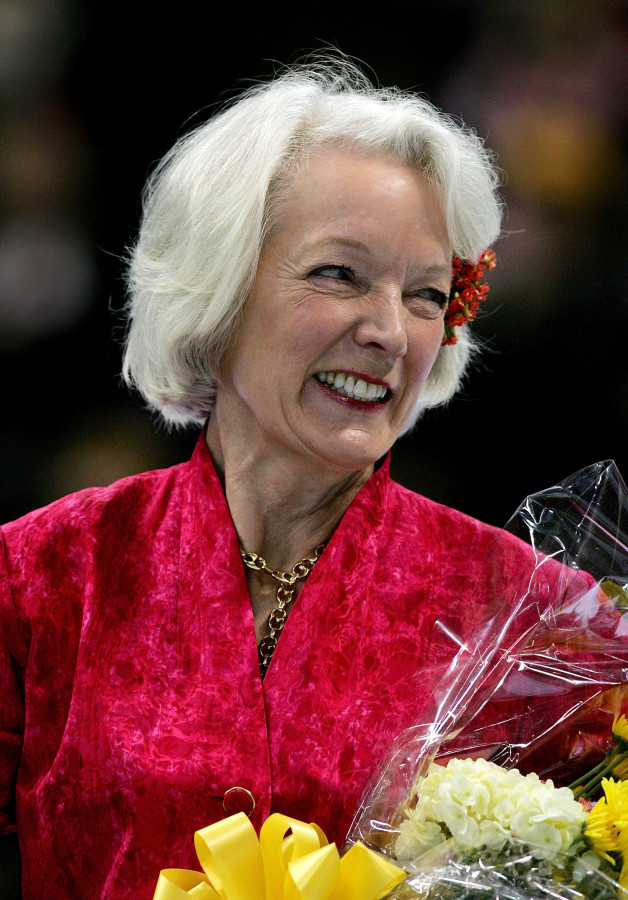
Tenley Albright
The first American woman to win an Olympic gold medal in figure skating. Named one of the “100 Greatest Female Athletes.” A successful surgeon and leader in blood plasma research, she works in international efforts to eradicate polio.
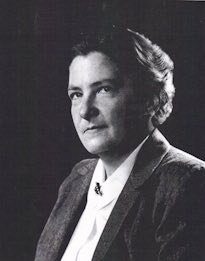
Dorothy H. Andersen
Pediatrician and pathologist who was the first to identify cystic fibrosis and developed a simple, definitive diagnostic test for the disease.
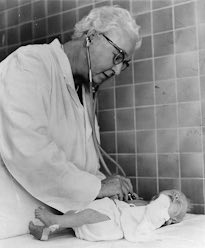
Virginia Apgar
Physician best known for development of the Apgar Score in 1952. This system of simple tests is used to determine whether a newborn child requires special medical attention, and it has saved thousands of lives.

Ann Bancroft
First woman to travel across the ice to the North and South Poles. She was the first woman to travel across Greenland on skis, and in 1993, was leader of the American Women’s Expedition, a group of four who skied more than 600 miles to the South Pole.
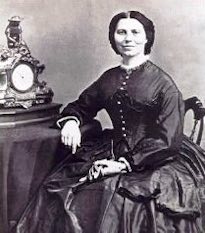
Clara Barton
Founder of the American Red Cross, Barton ministered to injured soldiers during the Civil War and became known as the “Angel of the Battlefield.” Devoted to the organization, she later took to the field, providing relief in the Spanish American War at the age of 77.

Faye Glenn Abdellah
First nurse to hold the rank of Rear Admiral and the title of Deputy Surgeon General for the United States. She developed the first tested coronary care unit. A national pioneer in nursing research, she has authored or co-authored more than 150 publications and helped change the focus of nursing from disease-centered to patient-centered.

Tenley Albright
The first American woman to win an Olympic gold medal in figure skating. Named one of the “100 Greatest Female Athletes.” A successful surgeon and leader in blood plasma research, she works in international efforts to eradicate polio.

Dorothy H. Andersen
Pediatrician and pathologist who was the first to identify cystic fibrosis and developed a simple, definitive diagnostic test for the disease.

Virginia Apgar
Physician best known for development of the Apgar Score in 1952. This system of simple tests is used to determine whether a newborn child requires special medical attention, and it has saved thousands of lives.

Ann Bancroft
First woman to travel across the ice to the North and South Poles. She was the first woman to travel across Greenland on skis, and in 1993, was leader of the American Women’s Expedition, a group of four who skied more than 600 miles to the South Pole.

Clara Barton
Founder of the American Red Cross, Barton ministered to injured soldiers during the Civil War and became known as the “Angel of the Battlefield.” Devoted to the organization, she later took to the field, providing relief in the Spanish American War at the age of 77.
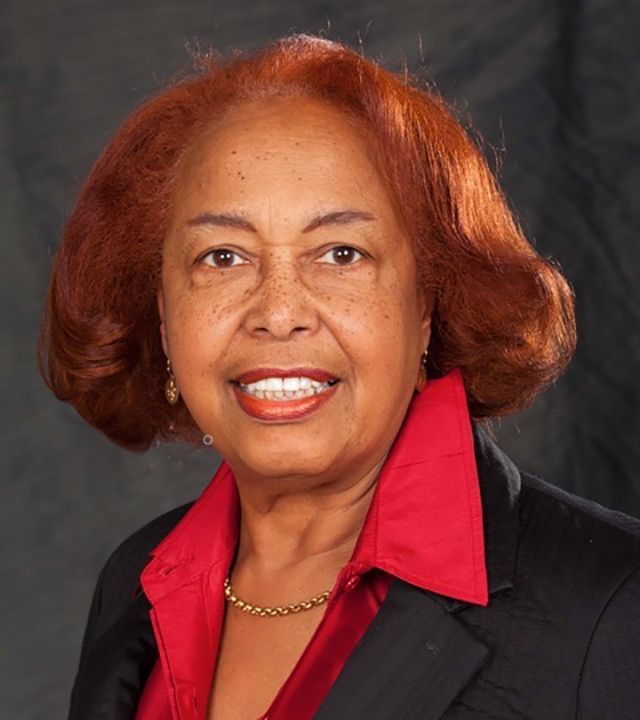
Patricia Bath
Patricia Era Bath was an American ophthalmologist, inventor, humanitarian, and academic. She was an early pioneer of laser cataract surgery and was the first Black woman physician to receive a medical patent, which she received in 1986, for the Laserphaco Probe and technique, which performed all steps of cataract removal.
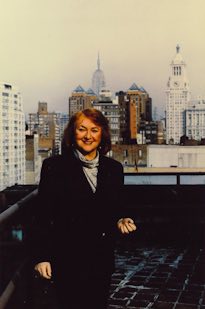
Eleanor K. Baum
As the former Dean of Engineering at Cooper Union and the Executive Director of the Cooper Union Research Foundation, Dr. Eleanor Baum is the first female engineer to be named dean of a college of engineering in the United States. In 1995, she became the first female president of the American Society for Engineering Education. An electrical engineer who has worked in the aerospace industry, Dr. Baum is a respected leader in recruitment and retention of women in the engineering profession.

Ruth Fulton Benedict
A student of Franz Boas and mentor to Margaret Mead, Ruth Fulton Benedict was a highly influential anthropologist whose theories tremendously influenced the field of cultural anthropology. Her 1934 Patterns of Culture became an American classic and is still a highly regarded publication today.
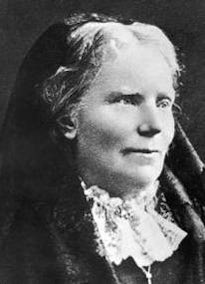
Elizabeth Blackwell
First American woman awarded an M.D. Blackwell founded the New York Infirmary for Women and Children and the Women’s Medical College, after having been banned from hospitals in New York. She paved the way for women in medicine.
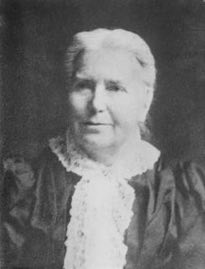
Emily Blackwell
Sister of Elizabeth Blackwell, was also a physician. Emily ran the infirmary for women and the medical college for women founded by her sister, providing excellent training for women in medicine.
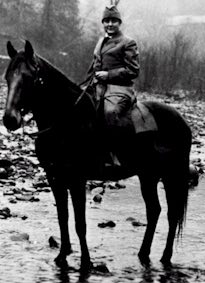
Mary Breckinridge
The United States foremost pioneer in the development of midwifery and provision of care to rural areas. Breckinridge founded the Frontier Nursing Service.

Patricia Bath
Patricia Era Bath was an American ophthalmologist, inventor, humanitarian, and academic. She was an early pioneer of laser cataract surgery and was the first Black woman physician to receive a medical patent, which she received in 1986, for the Laserphaco Probe and technique, which performed all steps of cataract removal.

Eleanor K. Baum
As the former Dean of Engineering at Cooper Union and the Executive Director of the Cooper Union Research Foundation, Dr. Eleanor Baum is the first female engineer to be named dean of a college of engineering in the United States. In 1995, she became the first female president of the American Society for Engineering Education. An electrical engineer who has worked in the aerospace industry, Dr. Baum is a respected leader in recruitment and retention of women in the engineering profession.

Ruth Fulton Benedict
A student of Franz Boas and mentor to Margaret Mead, Ruth Fulton Benedict was a highly influential anthropologist whose theories tremendously influenced the field of cultural anthropology. Her 1934 Patterns of Culture became an American classic and is still a highly regarded publication today.

Elizabeth Blackwell
First American woman awarded an M.D. Blackwell founded the New York Infirmary for Women and Children and the Women’s Medical College, after having been banned from hospitals in New York. She paved the way for women in medicine.

Emily Blackwell
Sister of Elizabeth Blackwell, was also a physician. Emily ran the infirmary for women and the medical college for women founded by her sister, providing excellent training for women in medicine.

Mary Breckinridge
The United States foremost pioneer in the development of midwifery and provision of care to rural areas. Breckinridge founded the Frontier Nursing Service.
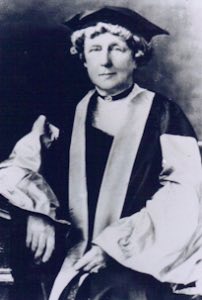
Annie Jump Cannon
Astronomer who perfected the universal system of stellar classification. While working at Harvard Observatory, Cannon compiled the largest accumulation of astronomical information ever assembled by an individual.

Rachel Carson
Zoologist whose concern over the damaging effects of pesticides and other poisons on the environment led to her groundbreaking work, Silent Spring. Carson’s book was a catalyst for the environmental movement of today.
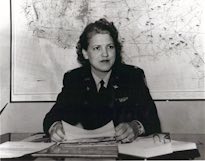
Jacqueline Cochran
First woman aviator to break the sound barrier. A leader and pilot, Cochran held many speed, distance and altitude records. She led the Women’s Air Force Service Pilots during World War II, becoming the first woman to pilot a bomber across the Atlantic Ocean.
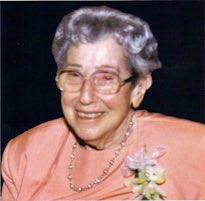
Mildred Cohn
A groundbreaking scientist in several important areas of biological research, Mildred Cohn pioneered research that helped form the scientific understanding of mechanisms of enzymatic reactions and the methods of studying them. In 1946, she introduced the use of isotopic oxygen 18 to study metabolic processes and enzyme mechanisms. She later applied nuclear magnetic resonance (NMR) and electron paramagnetic resonance (EPR) to investigate metabolism and metabolic intermediates. Cohn has published more than 150 scientific papers and has received several awards for her work, including the National Medal of Science in 1982.
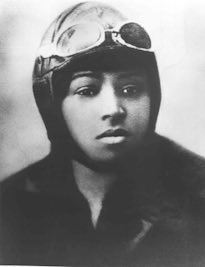
Bessie Coleman
The first licensed black female aviator. She earned her international pilot’s license in 1921 and gained fame during the next five years for her air acrobatics and highflying stunts. She dreamed of starting a school to train black aviators.
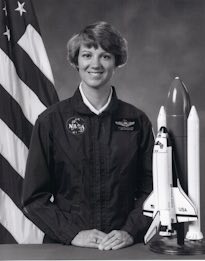
Eileen Collins
First American woman to pilot a spacecraft. A math teacher at the Air Force Academy and test pilot, Collins served as pilot of the space shuttle Discovery during a mission to rendezvous with space station Mir. In July, 1999 she became NASA’s first female commander in space.

Annie Jump Cannon
Astronomer who perfected the universal system of stellar classification. While working at Harvard Observatory, Cannon compiled the largest accumulation of astronomical information ever assembled by an individual.

Rachel Carson
Zoologist whose concern over the damaging effects of pesticides and other poisons on the environment led to her groundbreaking work, Silent Spring. Carson’s book was a catalyst for the environmental movement of today.

Jacqueline Cochran
First woman aviator to break the sound barrier. A leader and pilot, Cochran held many speed, distance and altitude records. She led the Women’s Air Force Service Pilots during World War II, becoming the first woman to pilot a bomber across the Atlantic Ocean.

Mildred Cohn
A groundbreaking scientist in several important areas of biological research, Mildred Cohn pioneered research that helped form the scientific understanding of mechanisms of enzymatic reactions and the methods of studying them. In 1946, she introduced the use of isotopic oxygen 18 to study metabolic processes and enzyme mechanisms. She later applied nuclear magnetic resonance (NMR) and electron paramagnetic resonance (EPR) to investigate metabolism and metabolic intermediates. Cohn has published more than 150 scientific papers and has received several awards for her work, including the National Medal of Science in 1982.

Bessie Coleman
The first licensed black female aviator. She earned her international pilot’s license in 1921 and gained fame during the next five years for her air acrobatics and highflying stunts. She dreamed of starting a school to train black aviators.

Eileen Collins
First American woman to pilot a spacecraft. A math teacher at the Air Force Academy and test pilot, Collins served as pilot of the space shuttle Discovery during a mission to rendezvous with space station Mir. In July, 1999 she became NASA’s first female commander in space.
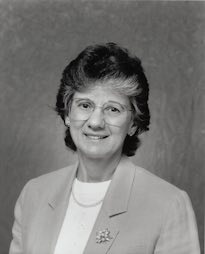
Rita Rossi Colwell
Dr. Rita R. Colwell became the first woman and first biologist to head the National Science Foundation in 1998, spearheading the agency’s emphases in K-12 science and mathematics education, graduate science and engineering education/training and the increased participation of women and minorities in science and engineering.
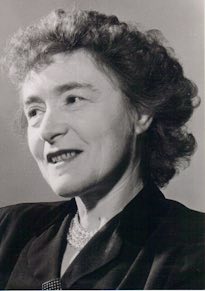
Gerty Theresa Radnitz Cori
First American woman to receive the Nobel Prize in science. Cori, along with her husband and Bernardo Houssay of Argentina, received the award in 1947 “for their discovery of the course of the catalytic conversion of glycogen.” Their work, the first bioengineering of a large biological molecule in a test tube, became the foundation for our understanding of how cells use food and convert it to energy.
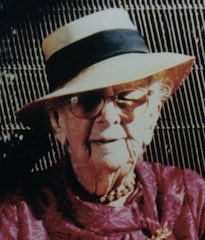
Marjory Stoneman Douglas
A journalist with the Miami News Record, she was an active leader in the Florida suffrage movement and an environmentalist credited with saving the Everglades as a national resource. Douglas authored over ten books and several plays, including The Everglades: River of Grass. After receiving the Presidential Medal of Freedom in 1993 at the age of 103, she remained an active and influential environmentalist to her death.

Amelia Earhart
The first woman to fly across the Atlantic Ocean, and the first to fly solo across the Pacific Ocean. Earhart was a strong individual who inspired other women to take risks in non-traditional arenas.
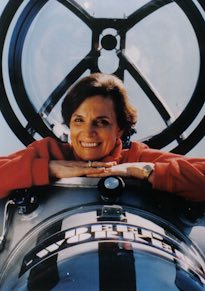
Sylvia A. Earle
An undersea explorer since age 13, Earle became an internationally recognized marine biologist, author, lecturer and scientific consultant. Denied the opportunity to participate in the U.S. Navy “Tektite Project” to study the ocean, she founded “Tektite II”, an all-female expedition that spent two weeks exploring the ocean floor. The founder of two companies to design and build undersea vehicles, she is chief scientist and consultant to oceanographic and marine research centers throughout the world.
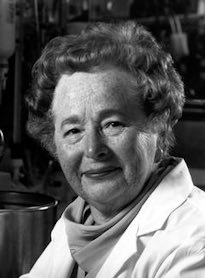
Gertrude Belle Elion
1988 Nobel Prize winner who spent a lifetime creating drugs to combat leukemia, gout, malaria, herpes and other auto-immune diseases. Elion’s work saved many lives, and led to the development of the first major AIDS drug AZT.

Rita Rossi Colwell
Dr. Rita R. Colwell became the first woman and first biologist to head the National Science Foundation in 1998, spearheading the agency’s emphases in K-12 science and mathematics education, graduate science and engineering education/training and the increased participation of women and minorities in science and engineering.

Gerty Theresa Radnitz Cori
First American woman to receive the Nobel Prize in science. Cori, along with her husband and Bernardo Houssay of Argentina, received the award in 1947 “for their discovery of the course of the catalytic conversion of glycogen.” Their work, the first bioengineering of a large biological molecule in a test tube, became the foundation for our understanding of how cells use food and convert it to energy.

Marjory Stoneman Douglas
A journalist with the Miami News Record, she was an active leader in the Florida suffrage movement and an environmentalist credited with saving the Everglades as a national resource. Douglas authored over ten books and several plays, including The Everglades: River of Grass. After receiving the Presidential Medal of Freedom in 1993 at the age of 103, she remained an active and influential environmentalist to her death.

Amelia Earhart
The first woman to fly across the Atlantic Ocean, and the first to fly solo across the Pacific Ocean. Earhart was a strong individual who inspired other women to take risks in non-traditional arenas.

Sylvia A. Earle
An undersea explorer since age 13, Earle became an internationally recognized marine biologist, author, lecturer and scientific consultant. Denied the opportunity to participate in the U.S. Navy “Tektite Project” to study the ocean, she founded “Tektite II”, an all-female expedition that spent two weeks exploring the ocean floor. The founder of two companies to design and build undersea vehicles, she is chief scientist and consultant to oceanographic and marine research centers throughout the world.

Gertrude Belle Elion
1988 Nobel Prize winner who spent a lifetime creating drugs to combat leukemia, gout, malaria, herpes and other auto-immune diseases. Elion’s work saved many lives, and led to the development of the first major AIDS drug AZT.
